#include <stdio.h>
int main()
{
int *ptr;
{
int x = 2;
ptr = &x;
}
printf("%x %d", ptr, *ptr);
return 0;
}
Output: address of x, value of x.
Here, ptr should be a dangling pointer, right? Yet, it still stores the address of x. How is it still pointing the value of x, even after that block is deleted?
#include <stdio.h>
int * func (int n)
{
int temp;
int *ptr = &temp;
temp = n * n;
return ptr;
}
int main()
{
int n = 4;
int *p = func(4);
printf("%x, %d", p, *p);
return 0;
}
Output: address of temp, 16
In this program, the data variable temp and its pointer variable ptr is created in separate function. Why does it produce a correct result?
#include <stdio.h>
int * func (int n)
{
int temp;
int *ptr = &temp;
temp = n * n;
for (int i = 0; i < 10; i++)
printf("%d ", *ptr);
return ptr;
}
int main()
{
int n = 4;
int *p = func(4);
printf("\n%x, %d", p, *p);
for (int i = 0; i < 10; i++)
printf("%d ", *ptr);
*p = 12;
printf("%d\n", *p);
printf("%d\n", *p);
return 0;
}
Output: 16 16 16 16 16 16 16 16 16 16
address of temp, 1
16 16 16 16 16 16 16 16 16 16
12
12
The above program is similar to the second one aside from the for loop. In
the main() function, it gives the correct output every time. Even if I tried to change it to *p = 10, it would still give the correct output no matter how many times I print it.
But in the second program, it only gives the correct output once because of undefined behavior. It gives garbage values after the first printf.
But in third program, how does it still give the correct output every time?
My questions are:
- The pointer variable points to a local variable which goes out of scope, but still prints the correct output and is accessible through the pointer variable by changing it's value. Why is it?
- Like the temp created in increment(), ptr is also created locally. Why is it printing the values correctly all of the time without any warning or error? If the for loop is not there, it also gives an error after printing once. Why is that so?
When I passed temp I got a warning and segmentation fault error. But why is ptr, a local variable, printing the values correctly? - In the first program, after printing *ptr many times, it gives a correct output, and I was able to change *ptr = 1; after the first printf. Why can I access ptr even though the variable went out of scope?
Thank you everyone for answering. I underatand now from all your answers. Thank you very much.


